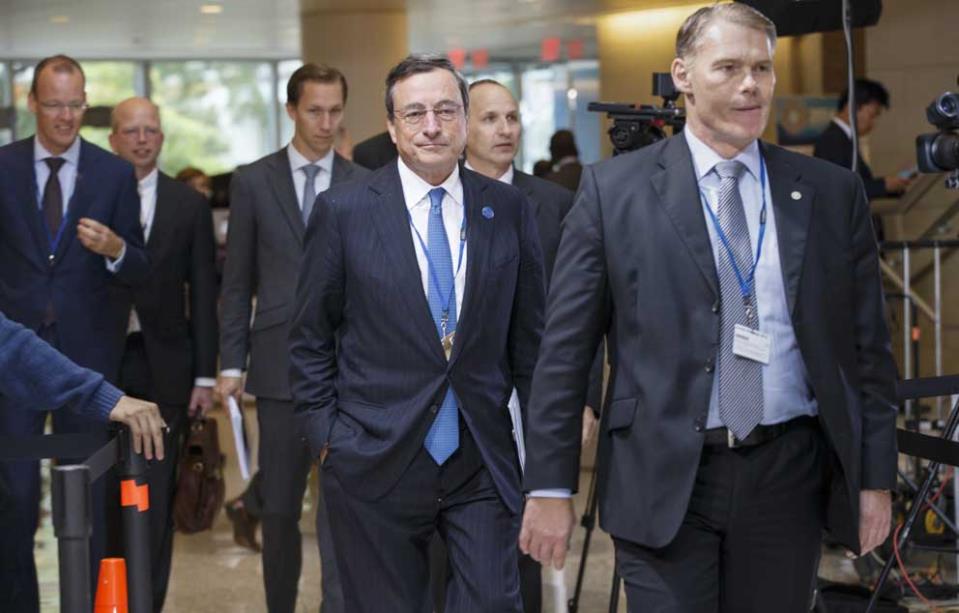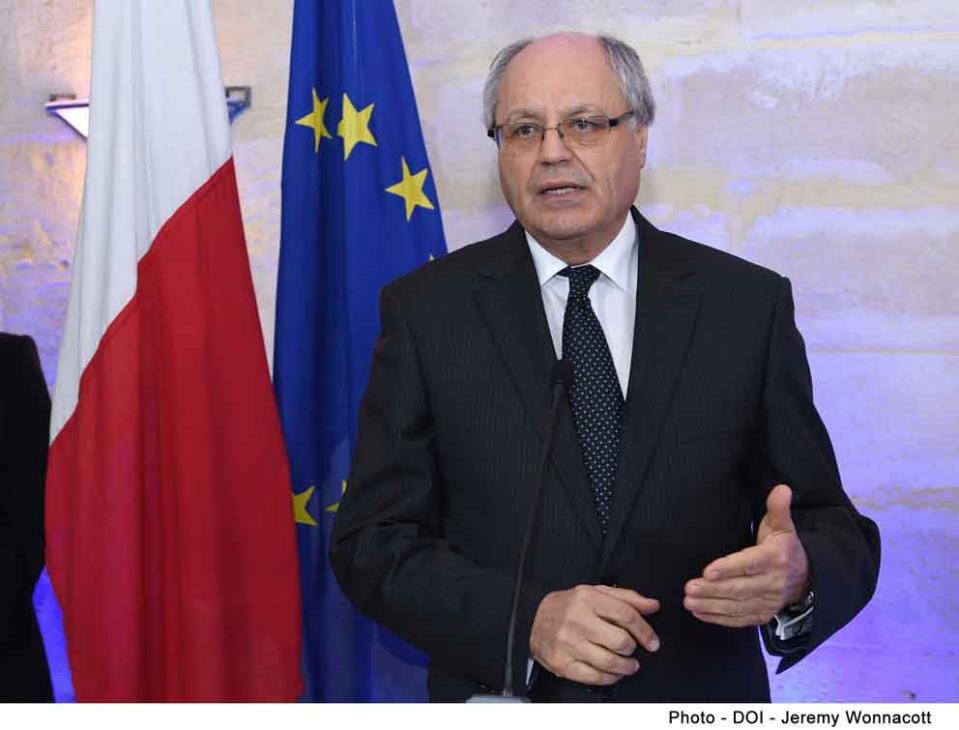Eurozone countries appear to be willing to compromise in the face of the election of a new Greek government which is pledging to renegotiate its bailout debts and do away with the austerity measures which were set as a condition for receiving them.
A majority of Greek voters ended up voting for parties opposed to the bailout agreements that they blame for years of recession and economic devastation, with left-wing party Syriza ending up forming a government with a right-wing Eurosceptic party as a junior partner.
A Syriza victory had been expected, but it has nevertheless raised fears that a Greek rejection of bailout terms would have ripple effects across the continent.

The new government has already declared that negotiations with the so-called “troika” of the European Central Bank, the European Commission and the International Monetary Fund are a thing of the past, and that it will instead seek to negotiate with other national governments.
But while Syriza has pledged to renegotiate Greece’s debt with the 19-country Eurozone, whose finance ministers held a meeting of the Eurogroup yesterday, Dutch Finance Minister Jeroen Dijsselbloem – Eurogroup’s president – has emphasised that there is little support for any debt write-off, and insisted that Greece must stick to the rules.
Greece has already received concessions in the form of lower interest rates and longer repayment periods, and Mr Dijsselbloem added that the possibility of a further extension of the bailout was on the agenda. But writing off debt does not appear to be an option.

In comments reported by The Times of Malta – a request for comments by The Malta Independent was acknowledged but not replied to at the time of going to print – Finance Minister Edward Scicluna insisted that debt owed to Malta and other Eurozone countries should not be written off.
Shadow minister for finance and Nationalist Party deputy leader Mario de Marco similarly maintained that he would not support an agreement that “increases the burden on Maltese taxpayers.”
The new government has sought to allay fears that it will engage in brinkmanship, including by ruling out a Greek exit from the Eurozone: an event which would likely shatter confidence in the EU’s single currency. But without the debt restructuring it desires, it may find it difficult if not impossible to implement its plans, which include progressively raising salaries and pensions, heavily increasing public expenditure and rebuilding the country’s welfare state.
Eurozone members have been declaring themselves open to dialogue, but it is clear that negotiations will be a difficult process, particularly since Europe’s largest economy – Germany – has been the strongest backer of austerity measures.
In what appears to be a symbolic measure, new Prime Minister Alexis Tsipras paid tribute to Greek resistance fighters executed by Nazi Germans in 1944 immediately after being sworn in. Syriza has also long pointed out that Germany’s present economic success owes a lot to the 1953 London Conference, in which its creditors agreed to write off a significant portion of West Germany’s debts.
Back then, an agreement to help Germany’s economy to recover was seen to be crucial light of the country’s position – on the border between the two rival sides in the Cold War. No such sense of urgency to reduce Greece’s debt burden is felt, however, at least for the time being.

‘Being elected is the easy part’
In his comments to The Malta Independent, Dr de Marco said that while the democratic expression of the Greek people had to be fully respected, there was now the need to carefully reflect on the implications of this result for Europe.
“Being elected on a promise to end austerity measures is the easy part. Delivering electoral promises is another matter altogether,” the PN deputy leader maintained.
Opposition to austerity has been a popular stand in Greece, and has been taken up by parties across the political spectrum, ranging from the Greek Communist Party (KKE) to the neo-Nazi Golden Dawn.
But Syriza – whose name is an acronym which stands for Coalition of the Radical Left in Greek – has positioned itself as the key anti-austerity voice in the country, in part thanks to the charisma of Mr Tsipras, who at 40 becomes the country’s youngest prime minister since the 19th century.
The party ended up obtaining 36.3% of the national vote, compared to 26.9% in the June 2012 election. Centre-right New Democracy, which led the previous government, was second with 27.8% of the vote, compared to the 29.7% share it obtained three years ago.

Golden Dawn has now actually become the third-largest party in the country, even though its share of the vote declined from 6.9 to 6.3%.
This was largely due to the collapse of the centre-left Panhellenic Socialist Movement (PASOK), which had been the third-largest party in the previous parliament and which had headed either the government or the opposition between 1977 and 2012.
PASOK’s share of the vote has collapsed over past years, from 43.9% in 2009 to 12.3% in June 2012, and to 4.7% in last Sunday’s election, leaving it as the seventh-largest party and the smallest one with parliamentary representation. The party split weeks before the election, with former Prime Minister George Papandreou forming the Movement of Democratic Socialists – which failed to win a seat with 2.5% of the national vote – while another new party, To Potami, is now the largest centre-left Greek political party after obtaining 6.1% of the vote.
The other two parties making it to parliament are the KKE, which won 5.5% of the national vote, and the conservative Independent Greeks (ANEL) which won a 4.7% share.

Parliamentary seats are allocated according to a system of proportional representation to parties which obtain at least 3% of the national vote, although the party which gains the largest number of votes also wins an additional 50 seat.
But Syriza still fell just short of a parliamentary majority, with 149 MPs in a 300-seat parliament.
Curiously, the party shunned fellow left-leaning parties and allied itself with ANEL, a Eurosceptic party whose leader and founder, Panos Kammenos, had defected from New Democracy in 2012 due to his opposition to the bailout.
An alliance with ANEL may have been the only option for Syriza if it was to stick to its stance on the bailouts, however. The KKE has ruled out any form of cooperation with Syriza, despite its own opposition to the bailout agreements, and both PASOK and To Potami insist that Greece must stick to its international obligations.

Will Spain follow Greece’s lead?
In his own reaction to the election, Alternattiva Demokratika chairman Arnold Cassola drew parallels between developments in Greece and the political situation in Spain, where Syriza’s political ally Podemos – which was only founded a year ago – has been gaining massive popularity ahead of a general election that must take place by the end of the year. Current polling suggests that Podemos is neck-and-neck with the ruling Partido Popular.
“The Greeks and the Spaniards are openly declaring that they are tired of the usual empty rhetoric of the traditional parties,” Prof. Cassola maintained.
However, he added that he believed that now that he is prime minister, Mr Tsipras will soften his attitude towards EU institutions, and that correspondingly, German chancellor Angela Merkel would also soften her attitude towards Greece.
“I believe that Tsipras will keep Greece in the Eurozone, but the terms of the bailout will be renegotiated to make it less harsh on Greek citizens,” Prof. Cassola said. Negotiations would be tough, he conceded, but he had faith that both sides would make concessions in the end.
In his comments to The Times, Prof. Scicluna similarly expressed his confidence that the demands of the new Greek government “will be watered down,” and also said that the Eurozone was likely to provide concessions, “not on the debt burden but the conditions for structural reforms imposed by the EU, ECB and IMF.”
On his part, Dr de Marco noted that “solidarity with Greece must go hand in hand with responsibility by Greece.”
“My first duty is towards Maltese taxpayers and as such, I would not support a new deal for Greece that increases the burden on Maltese taxpayers.
Prof. Cassola concluded that a degree of economic instability in the Eurozone is to be expected until details of a revised agreement with Greece is hammered out, but said that he was confident that things would eventually settle down, particularly in light of Greece’s relatively small size.
But he warned that things would have been different “had it been a bigger country like Spain.”